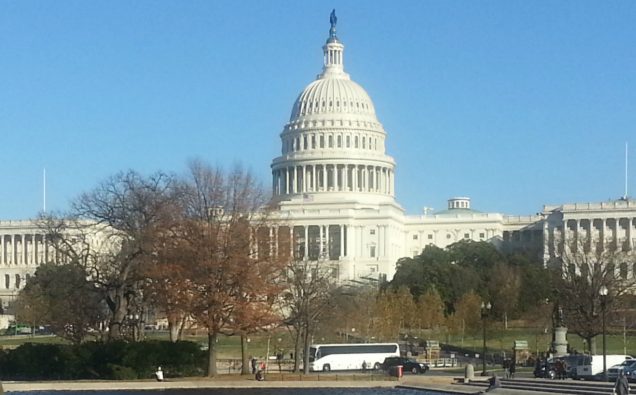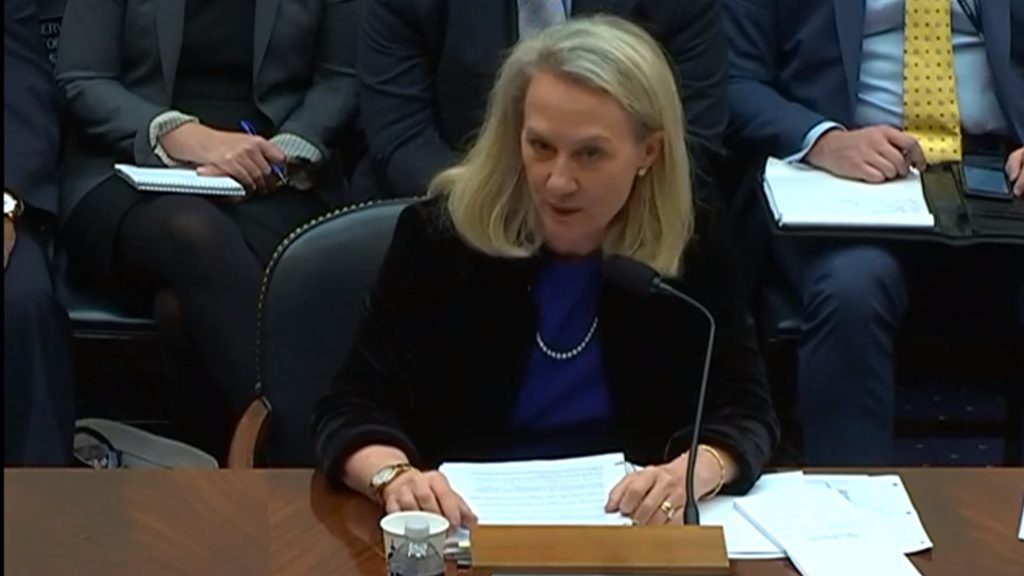
Amid continuing humanitarian catastrophe in the Indian-administered Kashmir, a senior State Department official told lawmakers at a hearing on Tuesday that Kashmiris’ voice needs to be heard once political process is restored.
Acting Assistant Secretary of State for South Asia Alice G Wells was responding to a series of questions at a House committee hearing on human rights in South Asia as people in the disputed Kashmir region – at the heart of tensions between nuclear-armed India and Pakistan – remained without basic freedoms of expression and movement in the wake of New Delhi’s August 5 suspension of its autonomous status.
“We absolutely believe that Kashmiris’ voice needs to be heard, that in any restoration, when there is restoration of a political, of an assembly, when there is the state assembly elections, that is the way for Kashmiris to be able to register their views, also in peaceful assembly,” Wells said.
She was responding to a question raised by Congresswoman Ilhan Omar about U.S. position on the Kashmiris’ right to self-determination.
“So, my first question to you is about the right of self-determination. Is the United States committed to emphasizing the centrality of Kashmiri voices in determining the future of Jammu and Kashmiri people?” Omar had asked the State Department official.
Continuing her reply, Alice Wells said: “I think the concern over restriction of movement and what we have seen over the last 78 days is that that ability to protest peacefully has been difficult for Kashmiris to exercise.”
Wells also told lawmakers that the August 5 actions – of doing away with constitutionally guaranteed autonomous status for Jammu and Kashmir – was approved in the Parliament including by members of the Opposition.
The Indian Supreme Court is reviewing the decision, the High Court is reviewing habeus corpus petitions. The institutions of India’s democracy are working, she said.
The U.S. has expressed concern over the plight of Kashmiris who have been denied basic freedoms and political rights under a communication blockade.
Congresswoman Omar was among the lawmakers who criticized the Indian ruling BJP government for suppression in Kashmir and argued that the Kashmir crisis be seen as part of the overall Hindu nationalism project of the BJP Government, headed by Prime Minister Narendra Modi.
Representative Omar also drew attention to the plight of Muslims facing discrimination in the Indian state of Assam and criticized the anti-Muslim plan of the ruling BJP government that has set strict conditions for Muslims to prove their citizenship while assuring followers of other faiths that they do not have to worry about the plan.
In her testimony, Wells echoed U.S. concern over denial of human rights in Indian administered Kashmir.
“While conditions in Jammu and Ladakh have improved, the Valley has not returned to normal. The Department has raised concerns with the Indian government regarding the detentions of local residents and political leaders, including three former Chief Ministers of Jammu and Kashmir. We have urged Indian authorities to respect human rights and restore full access to services, including internet and mobile networks,” Wells said in her testimony.

Picture taken by Views and News of a poster exhibition on Kashmir at Pakistan Embassy in Washington D.C.
Wells said the United States favors Pakistan and India holding a bilateral dialogue to address the Kashmir situation but also put the onus on Pakistan saying it should not allow any militants to operate from its soil to perpetrate terrorism in Kashmir.
“We are concerned about reports of local and foreign militants attempting to intimidate local residents and business owners in order to stymie normal economic activity. The United States supports the rights of Kashmiris to peacefully protest, but condemns the actions of terrorists who seek to use violence and fear to undermine dialogue. We welcomed Prime Minister Imran Khan’s recent unambiguous statement that terrorists from Pakistan who carry out violence in Kashmir are enemies of both Kashmiris and Pakistan. Pakistan’s harboring of terrorist groups like Lashkar-e- Taiba and Jaish-e-Muhammed, which seek to foment violence across the Line of Control, is destabilizing, and Pakistani authorities remain accountable for their actions.
“We believe the foundation of any successful dialogue between India and Pakistan is based on Pakistan taking sustained and irreversible steps against militants and terrorists in its territory. Both the President and Secretary Pompeo have met and spoken with their Indian and Pakistani counterparts multiple times, including at the recent United Nations General Assembly, to encourage dialogue,” Wells added.
Pakistan has rejected the accusations that it has allowed militants to cross over the Line of Control and carry out militant attacks on the Indian side, and says New Delhi is trying to divert world attention from its heinous crimes in Kashmir by such accusations.
Indian Prime Minister Modi has defended his August 5 decision to deprive Kashmir of its autonomy, claiming the measure would pave the way for investment inflows into the territory and bring jobs to local people. But the people of Jammu and Kashmri have rejected the move, saying it will allow the majority Hindu population to have settlements on their land and change the demographic complexion of the Muslim-majority UN-recognized disputed region.
At the hearing Alice Wells said the U.S. supports Pakistan-India dialogue under Shimla Agreement, and it also supports creation of conditions for such a dialogue.
She also told lawmakers that President Trump has offered to mediate on the Kashmir dispute, should both Pakistan and India desire him to do so.
Wells also made it clear that the United States’ relationship with India is based on partnership, and not dictation, when a lawmaker wanted to know if the Trump Administration was leveraging its influence to change New Delhi’s behavior on Kashmir.


















